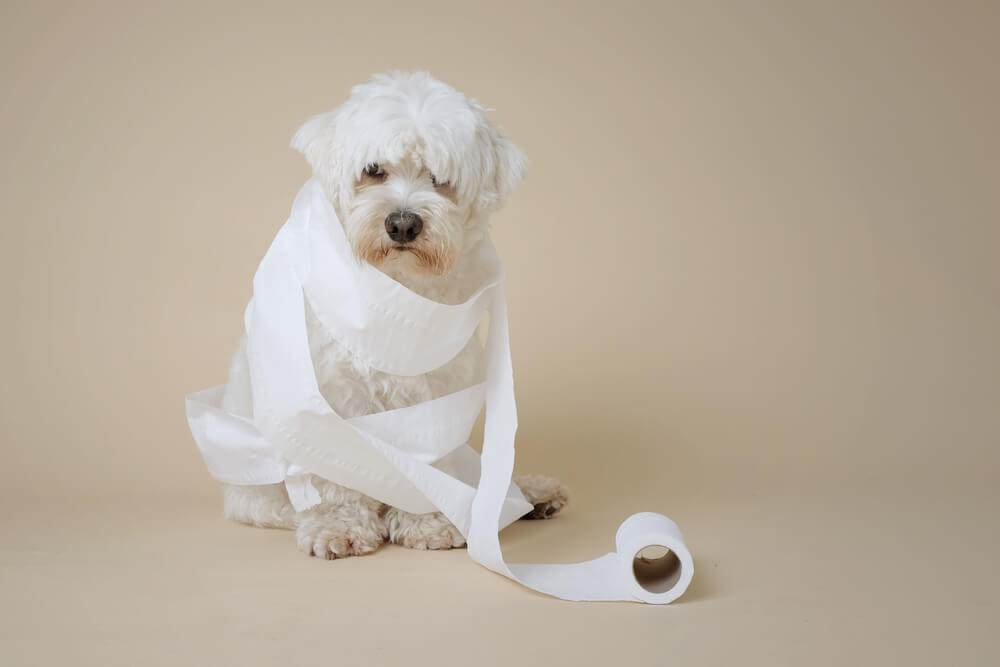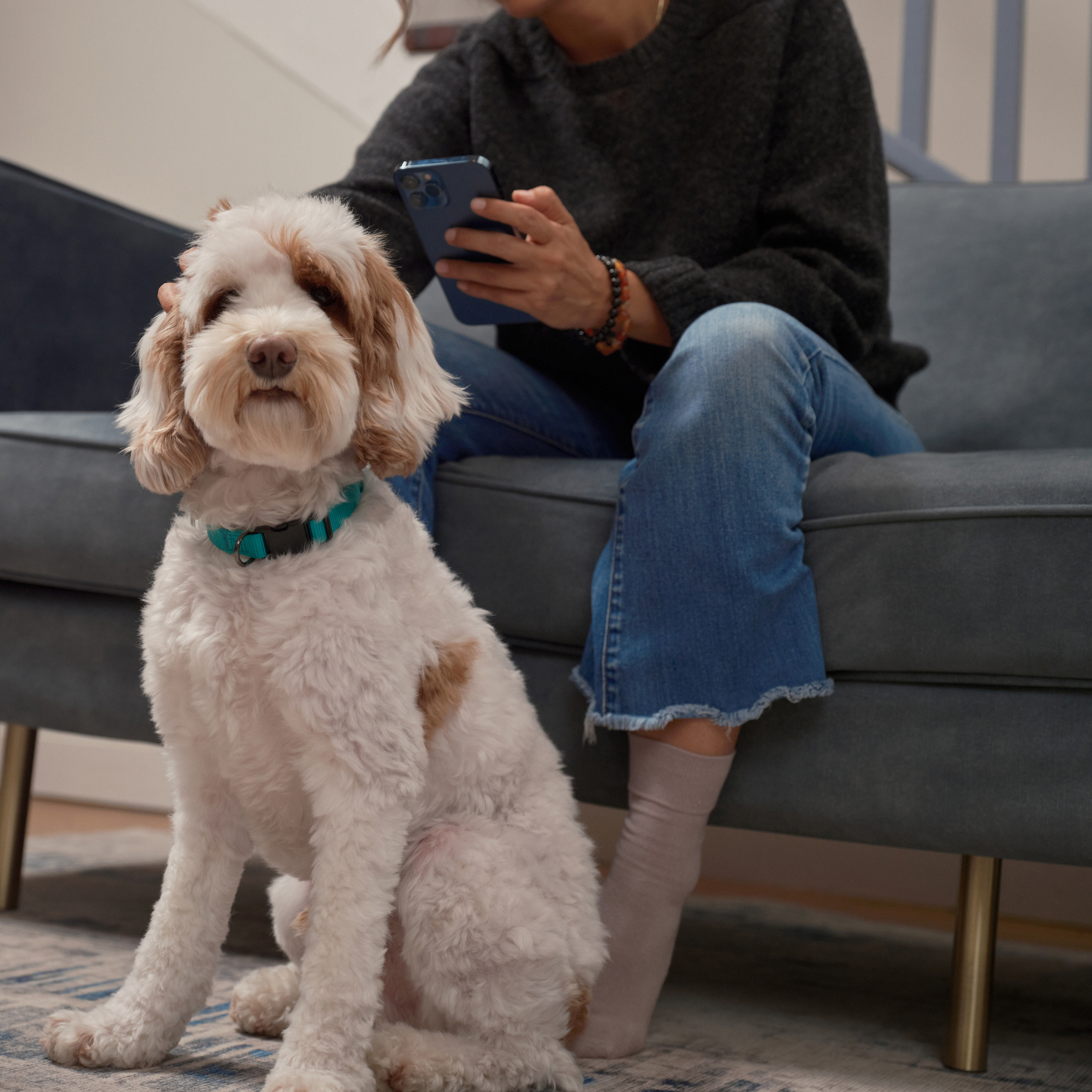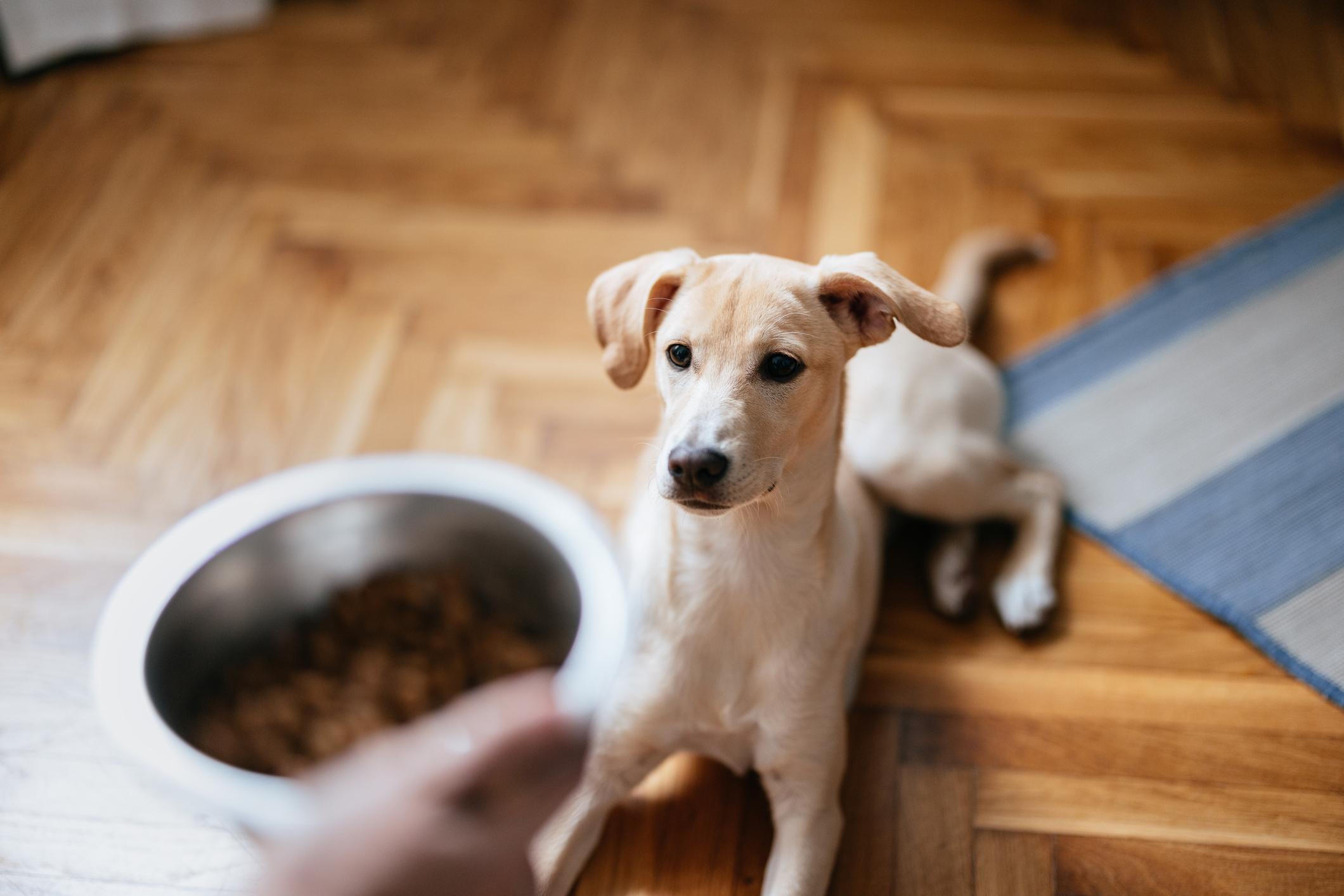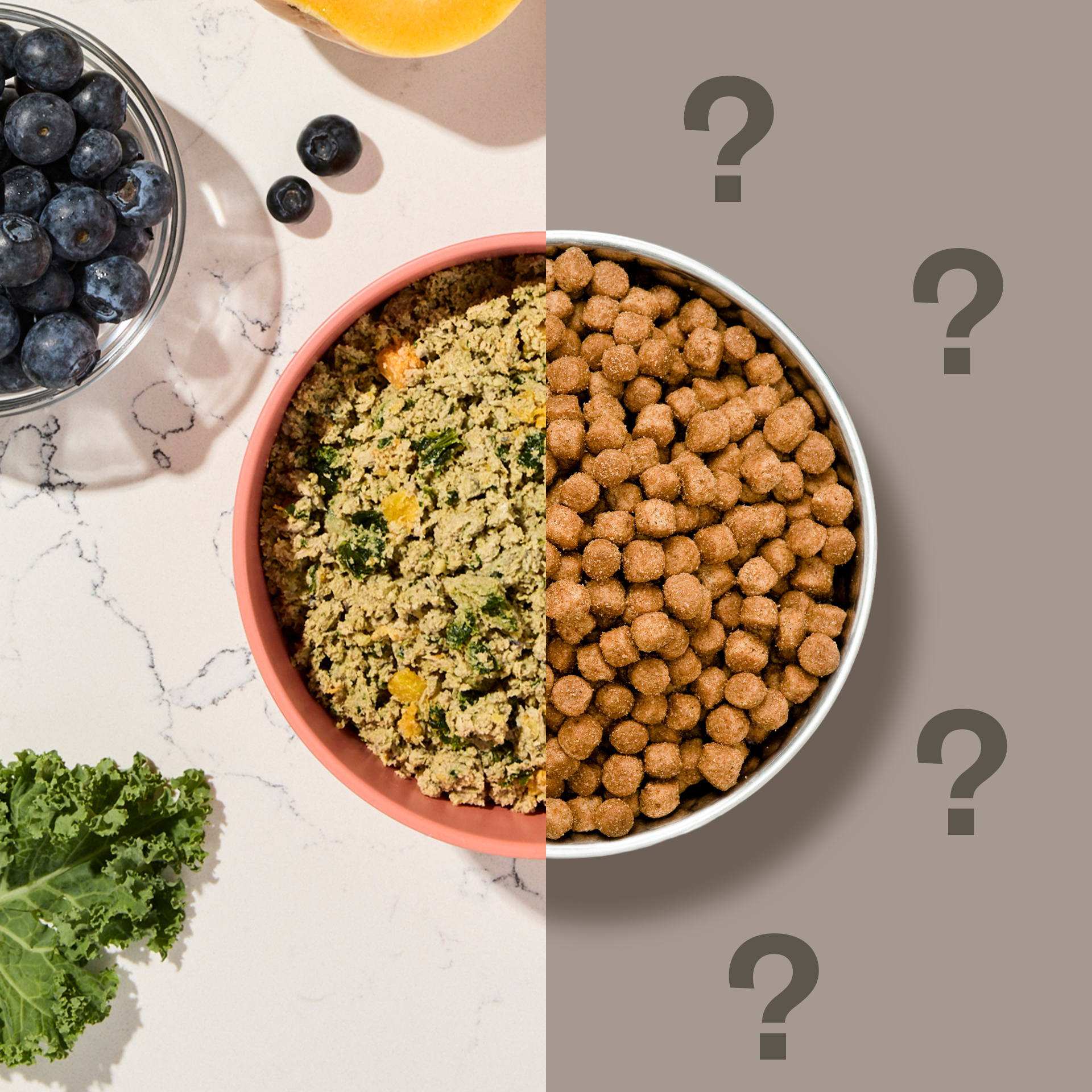Hey Ollie blog readers! We’re offering you an exclusive 60% OFF your starter box! Try now!
Dog diarrhea is a messy topic, but knowing how to deal with this unpleasant but sometimes unavoidable event is an important part of dog ownership. While nearly all dogs will have an occasional diarrhea episode occasionally, you can help prevent your dog from having loose stool.
If your pup is already dealing with diarrhea, read our tips for quickly remedying—or at least temporarily halting—this messy malady.
Why Does My Dog Have Diarrhea?
Diet change, including even a minor adjustment, is a major cause of dog diarrhea. As Gary Weitzman, DVM, MPH, CAWA, President and CEO of the San Diego Humane Society and author of the book National Geographic Complete Guide to Pet Health, Behavior, and Happiness: The Veterinarian’s Approach to At-Home Animal Care, explains, “We all know not to change a dog’s food abruptly, but [diarrhea] can happen from eating a new treat.”
Unusual foods in small amounts, such as a bite of pepperoni, can cause significant issues for dogs with testy digestive tracts. If this describes your dog, be cautious when changing their diet or introducing a new food or treat.
We design your dog’s ideal meal plan! Freshly cooked, delivered to your door!
Many issues can cause your four-legged friend to experience diarrhea. Common diarrhea causes in dogs include:
- Food allergies — According to Dr. Weitzman, “These are not as common as people think, but [diarrhea] could indicate a food sensitivity.”
- Inflammatory bowel disease (IBD)
- Bacterial infection
- Pancreatitis (i.e., pancreas inflammation)
- Parasites (e.g., roundworms, whipworms)
- Hypothyroidism or hyperthyroidism
- Toxin ingestion
- Gastrointestinal (GI) injuries, including those brought on by ingesting inedible household items
- Cancer
Best Food For Dogs With Sensitive Stomachs & Digestive Issues
What Is Diarrhea?
Diarrhea in dogs is when they pass loose or watery stools more often than usual. It’s a sign that something has irritated or disrupted the digestive system. This can happen for many reasons, from a sudden change in diet to stress, food allergies, infections, or even something as simple as eating garbage on a walk.
The color, texture, and frequency of the stool can tell you a lot. Mild cases may last a day and clear up on their own, but frequent or very watery diarrhea can lead to dehydration and needs attention. If you notice blood, mucus, or a bad smell, that could be a sign of a more serious issue like parasites or inflammation in the gut.
While occasional diarrhea isn’t always a cause for panic, it’s important to keep an eye on your dog’s energy, appetite, and hydration. Diarrhea itself isn’t a disease—it’s a symptom. Understanding what’s behind it is key to helping your dog feel better and stay healthy.
Ways to Cure Dog Diarrhea Quickly
If your dog’s loose stool is caused by something other than a diet change, food sensitivity, or harmless stomach bug, you should consult your veterinarian so they can identify and address the underlying cause. However, to stop your dog’s diarrhea quickly, follow these tips:
1. Switch Your Dog to a Bland Diet
Feeding your dog a bland diet will ease their irritated digestive tract’s workload while still providing necessary nutrients. Dr. Weitzman suggests boiling white rice, which can bind the stool, and mixing it with a low-fat protein. Steamed chicken or cooked ground beef with the fat drained off are great mild, low-fat protein options for dogs. A bland diet will also prevent diarrhea from worsening while you wait for your veterinarian to determine the underlying medical condition.
2. Consider a Probiotic
When a dog has diarrhea, they experience a significant gut microbiome imbalance, an extreme decrease in the healthy bacteria that dwell in their intestines. When harmful bacteria outnumber beneficial bacteria, a pup experiences altered digestion, reduced nutrient absorption, and poor immune health.
Probiotic (i.e., beneficial microbe) supplements can repopulate the gut microbiome and help restore normal balance and function. If your dog is suffering from diarrhea, your veterinarian will recommend probiotics as part of your pup’s treatment plan. To support digestion and immune function, and potentially prevent loose stool, you should also consider giving your dog probiotics before a potentially stressful event (e.g., veterinary visit, vaccines, diet change, relocation). Because beneficial bacteria are species-specific, always use a probiotic intended for dogs, but ensure you ask your veterinarian before adding any supplements to your pup’s diet.
3. Ask Your Veterinarian if You Can Give Your Dog Over-the-Counter Medication
Over-the-counter (OTC) medications can be a great way to slow your pet’s digestive tract, but always consult your veterinarian to ensure you give your pup medication that is safe for dogs and confirm proper dosing. Many medicines intended for humans contain xylitol, a sweetening agent that is toxic to dogs.
OTC medications are for short-term use only and intended only as a temporary fix until your pup can see the veterinarian. According to Jerry Klein, DVM, Chief Veterinary Officer for the American Kennel Club, the recommended Pepto-Bismol dose is one teaspoon for every 10 pounds of a dog’s body weight. Immodium is generally safe for dogs as well, but it’s typically used as a last resort because the medication can lead to constipation. “It’s for those 2 a.m. emergencies,” says Dr. Weitzman. If necessary, administer a 2-milligram pill for every 40 pounds of your dog’s body weight.
4. Find the Underlying Cause of Your Dog’s Diarrhea
Once you’ve started to resolve your dog’s diarrhea, you’ll need to play detective to determine what caused them to get sick in the first place.
Start by considering the obvious:
- Did your dog eat something they shouldn’t have?
- Did your dog have new food or a new kind of treat?
- Are any of your dog’s or your kids’ toys missing?
- Could your pet have eaten a small toy or other nonfood item?
What to Do If Your Dog Is Throwing Up Undigested Food
Once you have ruled out the obvious diarrhea-causing culprits, take a look at other factors.
Consider other reasons for your pup’s problem:
- Where has your dog been during the last few days?
- Does your dog spend time at doggy daycare or the dog park?
- Could your pup have a virus?
If your dog’s diarrhea is frequent or isn’t resolving, you should call your veterinarian. They will perform a physical exam, including blood work and a stool sample analysis, to check for bacteria, parasites, or other health-related issues. Once your veterinarian has determined the underlying cause for your pup’s diarrhea, they will create a treatment plan, which might include avoiding the food that caused the issue or avoiding high-traffic dog areas (e.g., dog parks or daycare).
When Should I Be Worried About Dog Diarrhea?
Most dog diarrhea cases are not serious. However, if your dog’s diarrhea persists for more than 36 hours, you should call your veterinarian. Schedule an appointment and collect a stool sample to bring in for the veterinarian to analyze.
10 Signs You Need to Take Your Dog to the Vet STAT
While isolated diarrhea events may be unconcerning, diarrhea that occurs with other illness signs can suggest a more serious underlying problem, especially in puppies. Seek veterinary attention if your dog’s diarrhea is persistent or accompanied by any of these signs:
- Lethargy or weakness — Diarrhea causes large quantities of unabsorbed water to move through your dog’s digestive tract, resulting in dehydration and weakness.
- Vomiting — Vomiting increases dehydration risk and can indicate an underlying virus (e.g., parvovirus in puppies and unvaccinated adult dogs), toxin ingestion, illness, parasitic infection, or internal blockage.
- Pain — Pups with abdominal pain may arch their backs, stand in a play bow or stretching posture, or avoid being touched. Your dog’s belly may also feel rigid or tight.
- Appetite or thirst loss — Food and water refusal can indicate GI discomfort or an underlying illness or disease process. Persistent signs can deplete your dog’s energy and lead to dehydration.
- Diarrhea containing blood, fat, heavy mucus, or having a black color — Stool containing abnormal contents or displaying an odd color can signal abnormal organ function or GI bleeding.
- Abnormal behavior — Unusual behavior or personality changes (e.g., hiding, anxiety, irritability) can indicate your dog is in pain or is ill, and your veterinarian should examine them promptly.
How to Help Prevent Diarrhea in Dogs
Dogs will be dogs, and you will not be able to prevent the occasional diarrhea episode. However, you can help minimize the likelihood that your dog will experience diarrhea while promoting a healthy and resilient digestive tract. Follow these tips:
- Feeding a consistent and balanced diet — Consistency and digestibility are key components to maintaining your pup’s stable, efficient, and regular digestive system. Avoid giving your dog rich or unusual foods (e.g., table scraps) because they may disrupt your pup’s intestinal function.
- Monitoring your pup’s stool — Keeping an eye on your pup’s bowel movements will help you learn to recognize what is normal for them, allowing you to identify mild changes.
- Minimizing stress — Dogs love predictability, so try keeping a daily routine and promoting a calm environment. Talk to your veterinarian about anxiety-reducing strategies if you suspect your pup is nervous or worried.
- Staying up-to-date on veterinary care — Regular wellness visits, including diagnostic screening tests (e.g., fecal parasite testing, blood work) can identify early health changes before they become serious.
Diarrhea in dogs isn’t the most glamorous aspect of canine ownership, but the condition is something that demands attention. Understanding diarrhea causes, treatments, and prevention, including a high-quality healthy diet, can help minimize the mess and keep your pup feeling their best.
Tagged As:

The nutrition your dog needs,
the food they want.

Enjoying our articles? Subscribe our Newsletters and get new articles directly to your inbox
You might also like
18 August 2025
9 MINS READ
Nourish Skin from Within: Fresh Dog Diet Benefits
If your dog is constantly scratching, licking their paws, or has a dull, flaky coat, it’s not just frustrating—it could be a sign that something’s off in their diet. Skin and coat issues are som…
by Ollie Pets
12 August 2025
5 MINS READ
Top 8 Allergens Hiding in Your Dog’s Bowl
As pup parents, we never want to see our dogs uncomfortable. When it comes to itching, swelling, and upset stomachs, the culprit may be in their bowl. Understanding the most common allergens and t…
by Ollie Pets
11 August 2025
5 MINS READ
Not all Processing Is Equal: What’s Really in Your Pet’s Bowl?
As pet parents, we know how important it is that our dogs live long, healthy, and happy lives. This is why at Ollie, we focus so much on what goes into their bowls. But did you know there may be s…







